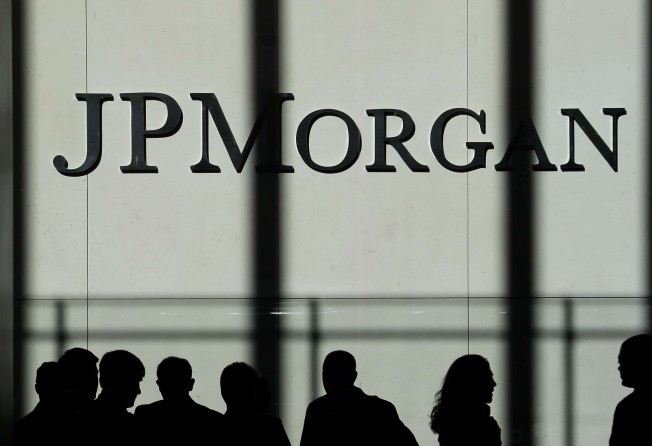JPMorgan settles bribery case for US$264 million after probe into Chinese hires
The US investment bank ran a programme known internally as ‘Sons & Daughters’ that hired 100 children and relatives of influential Chinese officials and businesspeople over a seven-year period

JPMorgan Chase & Co will pay US$264 million to the US government to settle allegations that it had hired the children and relatives of influential Chinese policymakers or officials in the hope of winning their business, the US Securities & Exchange Commission said in a statement on Thursday.
The settlement ends a three-year investigation into whether the hiring practice at the New York-based bank had breached US anti-bribery laws. At issue was whether JPMorgan was systematically targeting to hire the relatives of China’s most influential officials, policymakers and business leaders to curry favour with the country’s decision makers.
JPMorgan will pay the SEC US$130 million. It is also expected to pay US$72 million to the Justice Department and US$61.9 million to the Federal Reserve Board of Governors, according to the SEC statement.
“JPMorgan engaged in a systematic bribery scheme by hiring children of government officials and other favoured referrals who were typically unqualified for the positions on their own merit,” Andrew Ceresney, director of the SEC Enforcement Division said in the statement. “JPMorgan employees knew the firm was potentially violating the Foreign Corrupt Practices Act (FCPA), yet persisted with the improper hiring programme because the business rewards and new deals were deemed too lucrative.”
The regulator said JPMorgan’s Asia unit created a hiring programme that allowed clients and influential government officials to recommend potential job candidates. Those referred under the programme bypassed the firm’s normal hiring practises and received “well-paying, career-building JPMorgan employment,” the SEC said.
About 100 interns and full-time employees were hired over a seven-year period. JPMorgan won or retained business resulting in more than US$100 million in revenues because of the programme, the SEC said.
“We’re pleased that our cooperation was acknowledged in resolving these investigations,” JPMorgan’s spokesman Brian Marchiony said in an emailed statement. “The conduct was unacceptable. We stopped the hiring program in 2013 and took action against the individuals involved. We have also made improvements to our hiring procedures, and reinforced the high standards of conduct expected of our people.”
JPMorgan hired the friends and family members of executives at three-quarters of the major Chinese companies that it took public in Hong Kong, The Wall Street Journal reported in December 2015, citing the bank’s document compiled as part of the US government investigation.
The programme lasted from 2004 to 2013 and was known internally as “Sons & Daughters”, according to the Journal report.
US investigations into JPMorgan have claimed the jobs of at least two senior bankers. Todd Marin, vice chairman of Asia-Pacific investment banking, and Catherine Leung, vice chairwoman of Asia investment banking, left the bank in February 2015, Dow Jones Newswires reported.
No individual JP Morgan employees were named in the SEC statement, nor did the US authorities announce any criminal charges against either the bank or its employees.
The Chinese officials whose children or relatives are tied to JPMorgan’s hiring programme read like a Who’s Who of China’s policymaking and businesses.
Gao Jue, son of commerce minister Gao Hucheng, got a job at the bank. Tang Xiaoning, son of the China Everbright Group’s president Tang Shuangning, also worked at the bank, in addition to also having worked at Goldman Sachs and Citigroup.
Some officials also referred relatives or their friends’ children to intern at the bank.
Peter Pang, deputy chief executive of the Hong Kong Monetary Authority, referred his son to JPMorgan for an internship in 2006.
Charles Li, current chief executive of the Hong Kong Stock Exchange, referred the daughter of former China Securities Regulatory Commission’s official Huang Hongyuan to an internship while he was chairman of the bank’s China business from 2003 to 2009.
JPMorgan wasn’t the sole bank to be investigated. HSBC, Goldman Sachs & Co., Credit Suisse, Deutsche Bank and UBS have all been queried about their hiring practices.
“In financial services, if you have relationships and you can use those to get business, that’s part and parcel of investment banking, particularly in the current difficult business environment,” said John Mullally, director of Hong Kong & Shenzhen financial services at Robert Walters. “China is not particularly different from what happens elsewhere in the world.”
Earlier this year, Libya’s sovereign wealth fund alleged that Goldman Sachs tried to influence the fund’s then-deputy chief into purchasing some derivatives from the bank by granting an internship to his younger brother. However, a London judge ruled in October that the offer did not have a material impact on the Libyan Investment Authority’s decision to enter into the trades.
China’s Communist Party, which has been cracking down on corruption since President Xi Jinping took the reins of power, doesn’t bar cadres’ children from seeking jobs in foreign banks.
“These children are not public servants themselves, and can have full freedom when it comes to employment,” said Zhuang Deshui, an anti-corruption expert at Peking University. “But the officials are required to fill in where their spouses and children work in the reports about their personal information that they hand to the party.”